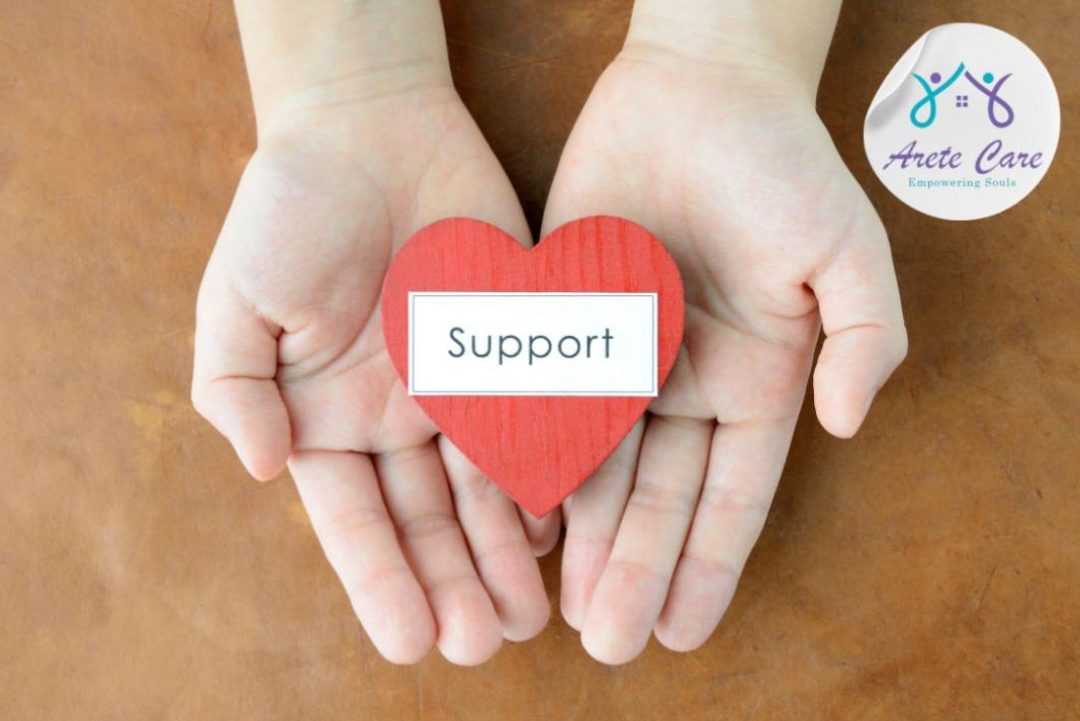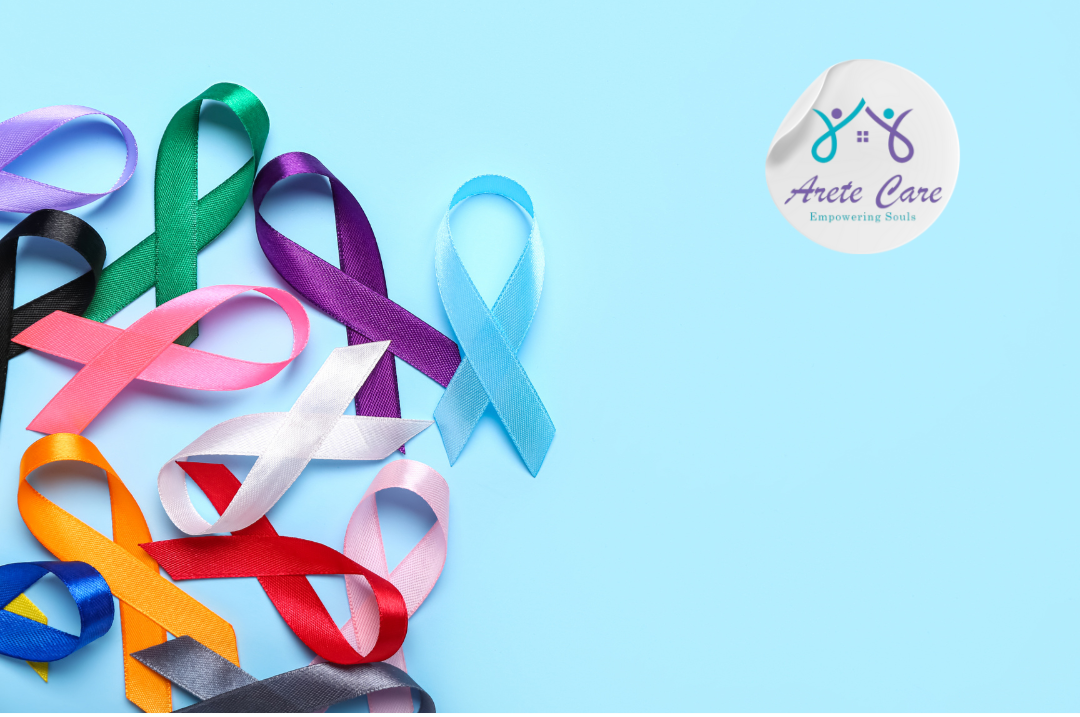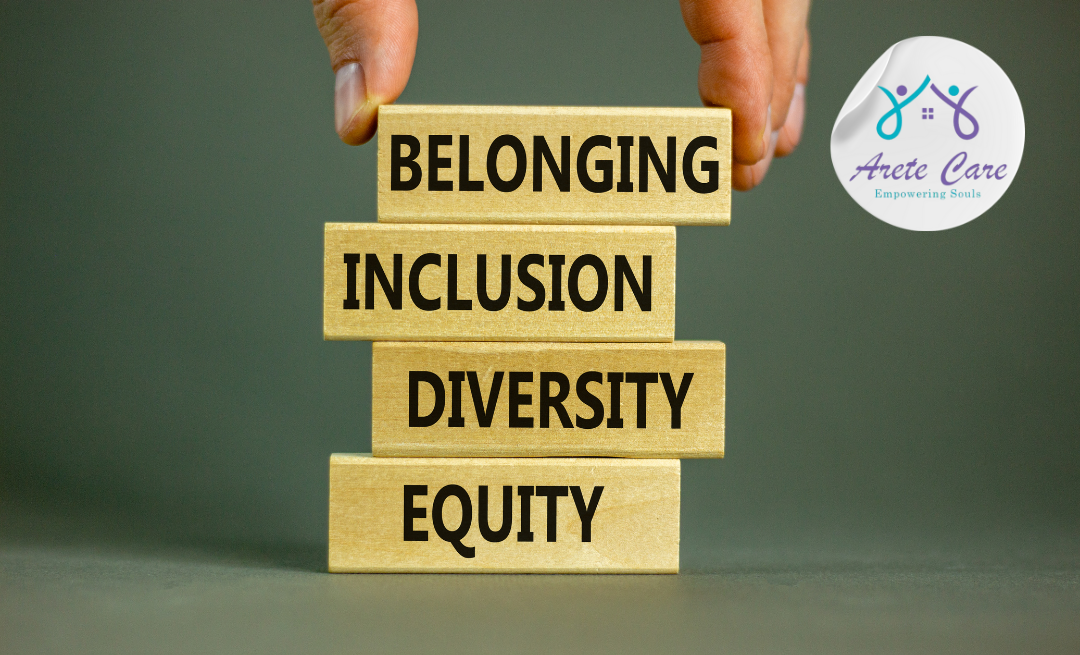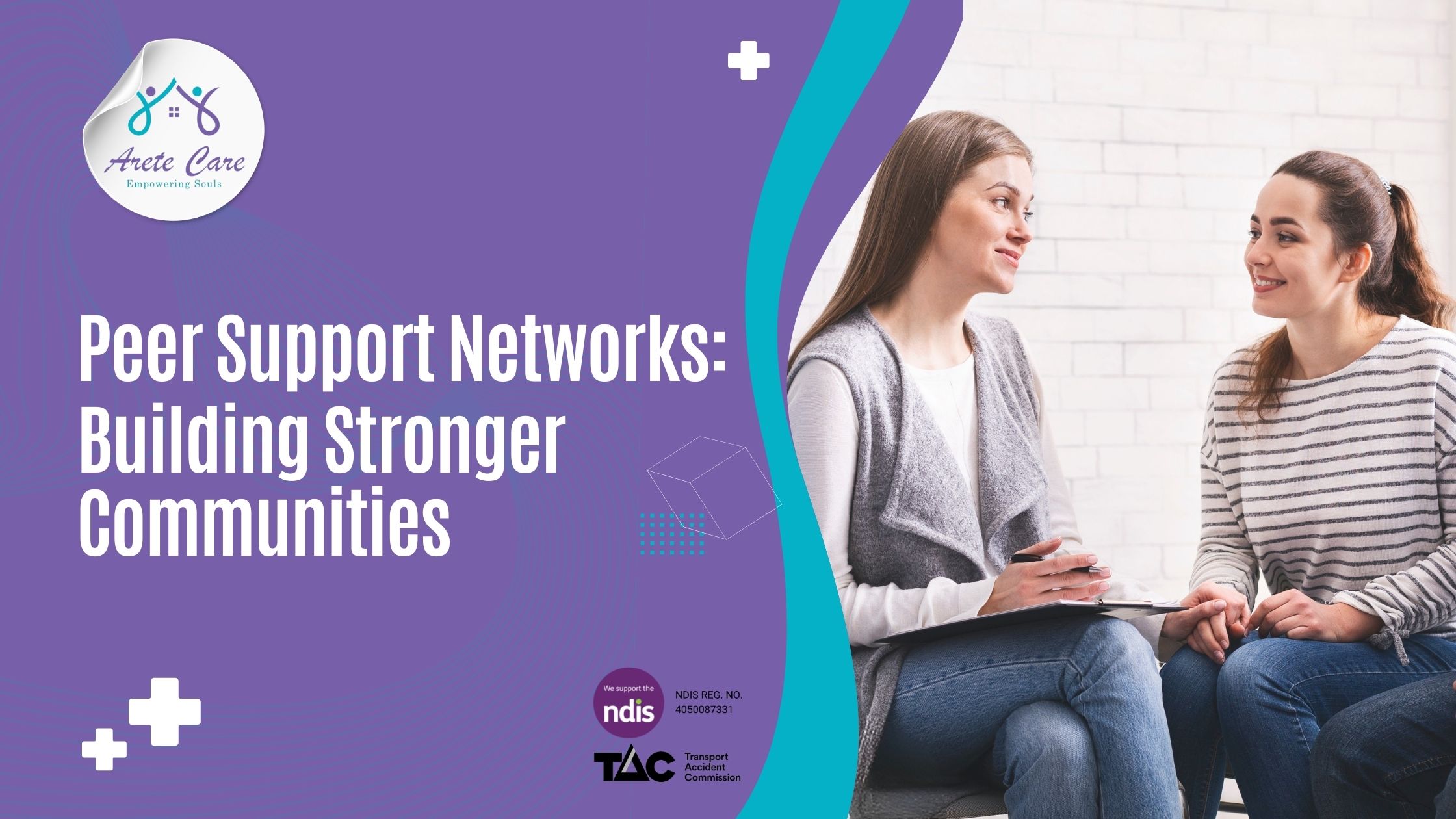Peer support networks play an important role in fostering a sense of belonging and community for people with disabilities. These networks provide opportunities for individuals to connect, share experiences, and offer mutual support. Support workers and organisations, such as Arete Care, contribute by facilitating these networks and providing additional guidance and resources.
Shared Understanding and Empathy

People with disabilities often face challenges that others may not fully understand. However, peer support networks help bridge this gap by connecting individuals with similar experiences, thereby fostering a sense of understanding and empathy. Additionally, with the assistance of support workers, these networks create spaces where participants feel valued and supported. As a result, people feel less alone and more connected in important ways.
Emotional and Practical Support

Peer support networks offer a combination of emotional encouragement and practical advice. Support workers like those at Arete Care make these efforts more effective by sharing their knowledge, connecting people with the right services, and helping them find good answers to the problems they are having.
Building Confidence and Independence

Peer network interactions frequently promote independence and self-assurance. For example, it can be incredibly empowering to watch others overcome similiar obstacles. Furthermore, support workers complement these interactions by encouraging goal setting and providing personalised assistance to help individuals achieve their aspirations. Ultimately, these combined efforts foster self-confidence and nurture a proactive mindset.
Advocacy and Awareness

Peer networks often engage in advocacy, raising awareness about issues affecting people with disabilities. Support workers contribute by assisting individuals in sharing their stories and connecting with wider initiatives aimed at improving accessibility and inclusion. Collaborations between peer networks and service providers can amplify these advocacy efforts, contributing to positive change in the community.
Creating a Sense of Belonging

Being part of a peer support network creates opportunities for meaningful social connections, which are vital for mental health and emotional well-being. Additionally, support workers play a significant role in facilitating these connections by organising activities, encouraging participation, and ensuring an inclusive and welcoming environment for all members. As a result, these efforts help foster stronger bonds within the network, ultimately contributing to a sense of belonging and community.
Encouraging Active Participation

Peer support networks promote involvement in community activities/engagements and events, with an emphasis on inclusivity and accessibility. Support workers contribute by helping Participants access these opportunities and encouraging their active engagement. This participation strengthens community bonds and promotes a more inclusive society.
CONCLUSION
To sum up, support networks provide essential spaces for connection, shared learning, and growth. Through the collaborative efforts of individuals, networks, and support services like Arete Care, these initiatives help build stronger, more inclusive communities while enhancing the quality of life for people with disabilities.


